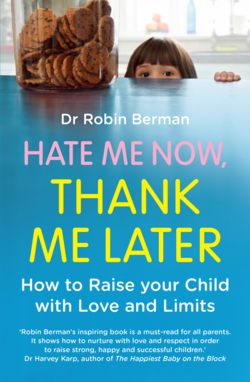Читать книгу Hate Me Now, Thank Me Later: How to raise your kid with love and limits - Dr. Berman Robin - Страница 13
CHAPTER TWO The Strength of the Bond
ОглавлениеWe do not write the story of childhood with a dry-erase board, we write with a permanent Sharpie.
—Sue Enquist, Hall of Fame softball player and coach
Years ago I worked with a seventy-five-year-old widower who was struggling with his return to dating after a long and loving marriage. In talking about his current relationship, he brought up the way his mother had treated him as a child. Then a lightbulb went off, and he asked me: “Why is it that I have been alive for seventy-five years, and I keep talking about the first eighteen?”
Because the first eighteen are when you learn to love. Your parents are your first and most formative relationship. This connection is the stuff that grows children into well-adjusted adults. Or not. The devastating, lasting effect of a weak parent-child bond is a common denominator in the lives of many of my patients.
A strong parent-child connection is the most crucial ingredient to self-esteem. How you feel loved as a child has a huge impact on how you see yourself, relate to the world, and give and receive love. How you are treated as a child informs your identity.
The long-term effect of missing out on a safe and secure bond is so powerful that it can lead to feelings of being disconnected or unworthy. Probably the most common refrain therapists hear, no matter how much their patients accomplish, is: “It is hard for me to receive love. Deep down, I still wonder if I am really lovable. I feel lonely and empty.” Without help, those who did not receive unconditional love may turn to love imposters such as food, alcohol, material acquisitions, and so forth.
On the other hand, kids who have loving connections to their parents—or, as shrinks say, who are securely attached—have an emotional tank that is full. This kind of bond fuels them for a lifetime of healthy relationships, first with themselves and then with others.
Most parents want to create that attachment, not drive their children into therapy. The vast majority of parenting mistakes are not malicious, but unconscious. We need to start parenting more consciously.
“Loving your child is an instinct. Good parenting is a teachable skill.”
—Harvey Karp, MD, pediatrician and author
Today parents are consciously trying to be more involved, but are we involved in the right way? Or are we trying so hard to be good at parenting that we miss the very essence of it: a loving bond?
Lasting bonds are forged through a combination of love, limits, and time. That’s the recipe for family peace.
